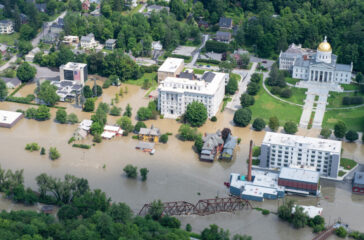Vermont advances bill targeting oil and gas companies for climate cleanup
By Dana Drugmand
In the aftermath of costly flooding that swept the US Northeast last year, lawmakers in Vermont on Tuesday advanced a proposed new law that aims to make fossil fuel companies liable for the costs of cleaning up communities battered by climate change-related events.
 EWG
EWG